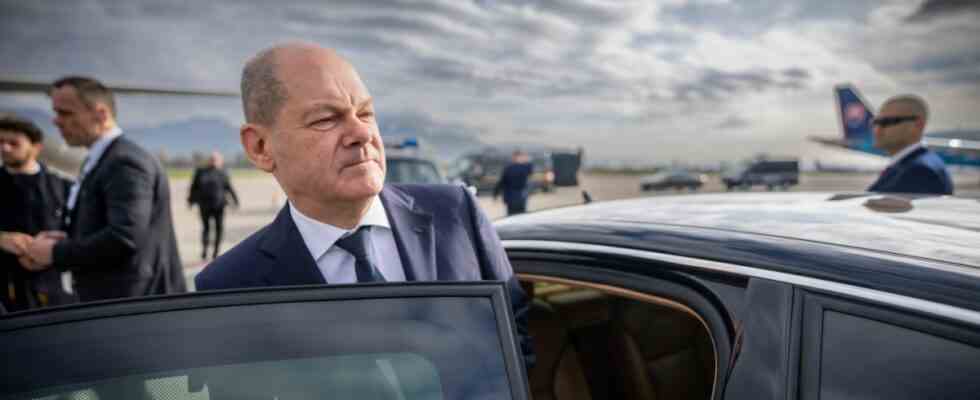The meeting, to which more than three dozen top European politicians traveled to the Albanian capital Tirana on Tuesday, was officially called the “EU-Western Balkans Summit”: The heads of state and government of the European Union came for a few hours with their colleagues from Albania, Bosnia-Herzegovina, Montenegro, North Macedonia, Serbia and Kosovo together.
And as is often the case on such occasions, the importance of the gathering was stressed at length. EU Council President Charles Michel, for example, described the meeting not only as “important” but also as “symbolic”. This was justified insofar as this was the first summit of this kind to take place in the Western Balkans region – at which the EU representatives were the arriving guests and not, as is usually the case, the representatives of the Balkan countries the petitioners who make representations in Brussels.
If you subtract the official symbolism, however, a rather ambivalent event remained. The EU and the Western Balkans – this is a relationship in which there is a lot on the one hand, but also a lot on the other.
On the one hand, all six Balkan countries represented in Tirana are official EU accession candidates. And the EU always emphasizes that this is serious, that these countries will indeed one day be full members of the Union. That was also the case on Tuesday in Tirana. “I am absolutely convinced that the future of our children with the Western Balkans in the EU will be safer and more prosperous,” said Council President Michel.
The gap is too great, from the economy to the rule of law
On the other hand, no one in Brussels would bet on the accession of the Western Balkans becoming a reality in the foreseeable future. The economic gap is too great for that, as are the problems with corruption and the rule of law.
In addition, the EU has also made Ukraine and Moldova candidate countries, which have even fewer chances of admission. A Western European diplomat in Brussels complains that the status is slowly being awarded in a somewhat inflationary way. And finally there are EU states, including Germany, which in any case only want to agree to an enlargement of the Union if the EU is reformed at the same time. Among other things, Berlin is demanding that more decisions then have to be made by majority vote — another problem like Hungary, which constantly torpedoes important decisions on its own, is something nobody wants to bring into the Union. This, too, complicates the accession of the Balkan countries.
The relationship is similarly ambivalent when it comes to other issues. On the one hand, there may be EU countries that don’t really care about the Western Balkans because they are far away. Or because Ukraine is much closer, where a war is raging.
On the other hand, it is obvious that the region is of great strategic importance. One of the most important migration routes into the EU is via the Western Balkans – a problem of considerable political explosiveness. In order to block the way for illegal immigrants, the Union needs the cooperation of the countries along this route. As a first step, officials from the EU border protection agency Frontex are to be sent to the Western Balkan countries from January. However, Brussels is also demanding that these states adapt their visa regulations with other countries to those of the EU.
After all – in the next year telephoning will be cheaper
In addition, the EU wants to avoid Russia and China further expanding their influence in the region. Moscow, for example, has a very friendly relationship with Belgrade and considerable potential for disruption via the Serb minorities in Bosnia-Herzegovina and Kosovo.
But the EU can only compete with Russia and China if the states of the Western Balkans see the Europeans as attractive, credible partners and do not feel stalled or rejected – on the one hand.
On the other hand, as long as countries like Serbia continue to maintain close ties with Moscow despite the invasion of Ukraine and provoke the EU by not supporting the economic sanctions against Moscow, Brussels can hardly pretend that everything is going well. “You have to decide which side you’re on – on the side of democracy, that’s the European Union, your friend and partner. Or do you want to take a different path?” warned EU Commission President Ursula von der Leyen on Tuesday Summit participants from the Balkans.
After all, the meeting in Tirana had a very concrete result: An agreement signed on the sidelines of the summit stipulates that telephone calls between the EU and the six Western Balkan countries will be cheaper from October 1, 2023.

